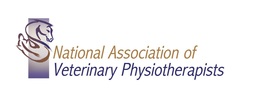Venue: Downe Farm Event Centre, Tiverton EX16 8QF
Date: 30 June - 2 July 2021
Helen Tompkins leads this three day course focusing on functional anatomy, development of palpation skills, and massage techniques. The aim of the course is to directly apply functional anatomy to inform a massage treatment, to develop quality of touch and to help inform the quality/suitability of the treatment delivered. This equine massage course has been specifically designed with the veterinary physiotherapist in mind. It has proved very popular with students and graduate members.
Foundation Equine Massage Course
Canine functional anatomy, biomechanics, soft-tissue mobilisation, joint mobilisation, and core strength conditioning CPD
with Dr Nicole Rombach, APM, CCBW, MEEBW, MSc, PhD
7th and 8th October 2017
at
Writtle University College
Chelmsford
Essex
CM1 3RR
£250
7th and 8th October 2017
at
Writtle University College
Chelmsford
Essex
CM1 3RR
£250
This 2 day CPD is open to all qualified canine therapists and covers both theory and practical* elements.
* Nicole has asked that if anyone attending the course would be willing to bring their dog along with them for those practical sessions to please indicate so on the booking form.
Theory:
- Canine biomechanics: evidence-based concepts of mechanoreception, nociception, and joint mobilisation / range of motion (ROM) in function / dysfunction of the canine spinal column
- Neuromotor control: evidence-based concepts of motor control in dynamic function stability
- Evidence-based concepts of muscle activation and proprioceptive facilitation: strengthening rehabilitation versus general conditioning
Practical:
- Joint mobilisation and ROM techniques for the axial system (cervical and cervicothoracic region, thoracic and thoracolumbar region, lumbopelvic region, sacral and coccygeal region) and the appendicular system
- Static and dynamic motion assessment with an emphasis on evaluation of muscular (a)symmetry
- Clinical reasoning based on findings from static and dynamic evaluations
- Muscular facilitation techniques / methods for proprioceptive activation
- Core strength activation / facilitation techniques
Required reading
A review of canine musculoskeletal anatomy
A review of the anatomy and physiology of the nervous system
* Nicole has asked that if anyone attending the course would be willing to bring their dog along with them for those practical sessions to please indicate so on the booking form.
Theory:
- Canine biomechanics: evidence-based concepts of mechanoreception, nociception, and joint mobilisation / range of motion (ROM) in function / dysfunction of the canine spinal column
- Neuromotor control: evidence-based concepts of motor control in dynamic function stability
- Evidence-based concepts of muscle activation and proprioceptive facilitation: strengthening rehabilitation versus general conditioning
Practical:
- Joint mobilisation and ROM techniques for the axial system (cervical and cervicothoracic region, thoracic and thoracolumbar region, lumbopelvic region, sacral and coccygeal region) and the appendicular system
- Static and dynamic motion assessment with an emphasis on evaluation of muscular (a)symmetry
- Clinical reasoning based on findings from static and dynamic evaluations
- Muscular facilitation techniques / methods for proprioceptive activation
- Core strength activation / facilitation techniques
Required reading
A review of canine musculoskeletal anatomy
A review of the anatomy and physiology of the nervous system
| ||||||||
Dr Nicole Rombach APM, CCBW, MEEBW, MSc, PhD
Nicole attained the ITEC human massage qualification (UK) in 1997, the Equinology Equine Body Worker certification in 1998 and the Equinology Master Equine Body Worker certification (USA) in 1999, and has since taken most of the courses in the Equinology Specialised certification series. She holds the Caninology Canine Body Worker certification and also completed the post-graduate and MSc programmes in Animal Manipulation (small and large animals) with the McTimoney College of Chiropractic and University of Wales in the UK.
From 2003-2009 she was based in Sao Paulo, Brazil, where she worked in direct liaison with various veterinary clinics, focusing on complementary therapies for sports performance horses to Olympic level. She travelled to national competition centres and private clients throughout Brazil and in other South American countries. In addition, she carried out infrared thermographic imaging in conjunction with equine veterinarians to aid their diagnostic procedures. She also regularly worked with an established clientele of dogs.
In 2013, Nicole earned her PhD from the College of Veterinary Medicine at Michigan State University. Her main interest lies in the effect of complementary therapies on performance, and the subject for her doctoral research was investigation into equine neck pain from the perspectives of pathology, neuromotor control, and equine behaviour associated with spinal dysfunction.
Nicole regularly lectures at various universities, at conferences and for professional associations, presenting evidence-based courses on spinal dysfunction with an emphasis on neuromuscular rehabilitation techniques. She is the co-founder of the International Equine Body Worker Association (est. 2003) and is Course Development Liaison Manager for Equinology Inc. in California, USA. Nicole is also the chief instructor for Neurokinetic Therapy Equine and Canine courses worldwide.
From 2003-2009 she was based in Sao Paulo, Brazil, where she worked in direct liaison with various veterinary clinics, focusing on complementary therapies for sports performance horses to Olympic level. She travelled to national competition centres and private clients throughout Brazil and in other South American countries. In addition, she carried out infrared thermographic imaging in conjunction with equine veterinarians to aid their diagnostic procedures. She also regularly worked with an established clientele of dogs.
In 2013, Nicole earned her PhD from the College of Veterinary Medicine at Michigan State University. Her main interest lies in the effect of complementary therapies on performance, and the subject for her doctoral research was investigation into equine neck pain from the perspectives of pathology, neuromotor control, and equine behaviour associated with spinal dysfunction.
Nicole regularly lectures at various universities, at conferences and for professional associations, presenting evidence-based courses on spinal dysfunction with an emphasis on neuromuscular rehabilitation techniques. She is the co-founder of the International Equine Body Worker Association (est. 2003) and is Course Development Liaison Manager for Equinology Inc. in California, USA. Nicole is also the chief instructor for Neurokinetic Therapy Equine and Canine courses worldwide.

